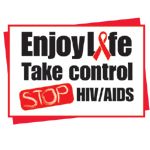Knowing the warning signs of a heart attack could save someone’s life ” maybe even your own.
Coronary heart disease and heart attack is the underlying cause of death for almost 25,000 Australians every year. Among Indigenous Australians, heart disease affects around one in eight people, with the 2004-2005 National Aboriginal and Torres Strait Islander health Survey finding a marked increase in the prevalence of heart disease among Indigenous people from around 35 years of age onwards, which is about 10 years earlier than in the non-Indigenous population.
To mark Heart Week, which runs from April 29 to May 5, the Heart Foundation is urging all Australians to become aware of the warning signs of a life-threatening heart attack and of the importance of calling 000 immediately to save lives and prevent serious damage to the heart.
“Far too many deaths from heart attack occur before the person reaches hospital,” says National Heart Foundation CEO, Dr Lyn Roberts. “We need all Australians to recognise the signs and know what to do immediately to save lives.”
The warning signs of a heart attack can vary. Symptoms usually last for at least 10 minutes, and may include one or more of the following:
- Pain in the chest ” A heart attack usually causes discomfort or pain in the centre of the chest. The pain may come on suddenly, or start slowly, developing over minutes. It may feel like tightness, pressure, heaviness, fullness, or squeezing. The pain may be severe, moderate or even mild.
- Pain spreading ” The chest discomfort may spread to the neck and throat, jaw, shoulders, the back, either or both arms and even into the wrists and hands.
- Discomfort in the upper body ” Some people don’t get any chest pain, and may only feel discomfort in parts of the upper body. There may be a choking feeling in the throat. The arms may feel heavy or useless.
- Other symptoms ” Often there may also be difficulty breathing, nausea or vomiting, a cold sweat or a feeling of being dizzy or light-headed.
What you need to do:
If you experience any of these warning signs:
1. Immediately stop what you are doing and rest.
2. If you are with someone, tell them what you are experiencing.
3. If your symptoms are severe, get worse quickly or last for 10 minutes (even if they are mild), this is an emergency. Get help fast. Call 000 and ask for an ambulance.
4. Don’t hang up. The operator will give you advice before the ambulance arrives.
5. If calling 000 does not work on your mobile, try 112.
If you are with someone who may be having a heart attack, take charge and follow the steps above. Stay with the person until the ambulance arrives.






Comments are closed.